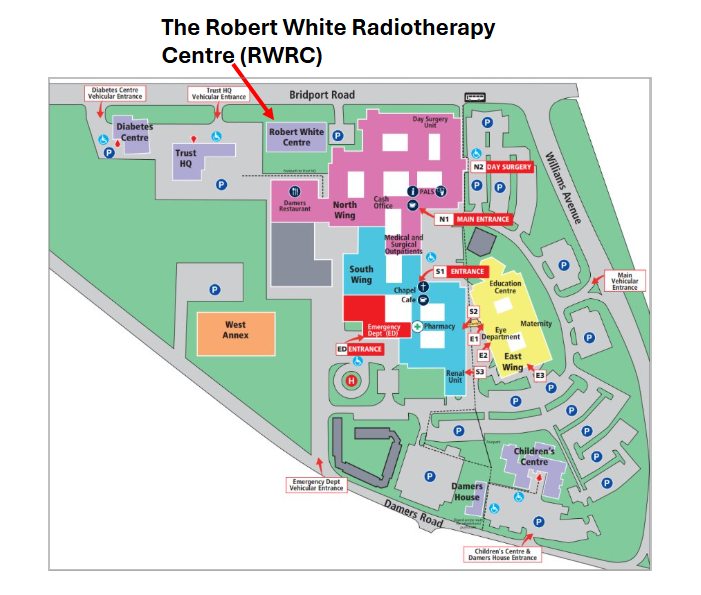Head and Neck Support Team
We are a combined multidisciplinary team consisting of a therapeutic radiographer, specialist nurses, dieticians and speech and language therapists. Together we provide support for head and neck cancer patients at UHD.
If you are a patient with a cancer diagnosis involving the head and neck, you can contact your specialist team using the useful contact numbers below.
For patients with cancer involving the brain please click here for support and contact details relevant to your diagnosis.
You can find advice on eating well with cancer here.
Head and Neck Support Team
Useful Contacts for Head and Neck Patients
Sandie Smailes, Advanced Head and Neck Clinical Practitioner: 0300 019 2481
Head and Neck Clinical Nurse Specialists: 0300 019 2392 or 0300 019 2365
Speech and Language (SALT) team: 0300 019 8662
Dieticians: 0300 019 2129
Eating well with cancer
Eating well when you have a cancer diagnosis is very important. Good nutrition supports the body's ability to repair itself allowing you to recover quicker from the effects of cancer treatments.
Some advice on how to eat well when you have cancer can be found on the Wessex Cancer Alliance Resource page here.
Information to help with eating problems
Treatments for cancer such as radiotherapy and chemotherapy can cause difficulty in eating and weight loss. We recommend the following resources to support you in gaining weight and maintaining your calorie intake.
Cancer and weight loss - the building-up diet | Macmillan Cancer Support
Eating problems | Macmillan Cancer Support
Dietician Support Contact Number
If you are a radiotherapy patient and need further advice on nutrition, or you are struggling with eating you can contact the dieticians on 0300 019 2129.
What is Radiotherapy?
Radiotherapy is a treatment used to target cancers (and some benign conditions).
It works by using high energy radiation to penetrate and destroy cells within an accurately planned area of the body.
Treatments can be delivered over a number of days (fractions). Normal cells have the ability to repair, but abnormal cells such as cancer cells are destroyed over time. Rest days are built into the course of treatment to enable healthy cells to recover.
Radiation dose is prescribed to a precisely targeted area. The plan is specific to each patient. There are many different treatment schedules. The number of treatments required will be guided the type of cancer that you have.
Why is Radiotherapy Used?
Radiotherapy is often given alongside other forms of cancer treatment such as chemotherapy, hormone therapy, surgery and immunotherapy. It can also be given alone.
We can use radiotherapy to:
- Prevent recurring cancer or cure cancer (radical radiotherapy)
- Control (slow down) the growth of cancer
- Relieve the symptoms of cancer (palliative radiotherapy)
If you need radiotherapy, an oncology specialist will consult with you. They will discuss the intended outcome, risks and benefits and you will have an opportunity to ask questions before you decide to go ahead.
Videos
More information coming soon.
Radiotherapy at the Dorset County Hospital
Our address
The Robert White Radiotherapy Centre (RWRC)
Robert White Building,
Dorset County Hospital
Williams Avenue Dorchester
Dorset
DT1 2JY
Location and parking
The radiotherapy department is situated on the ground floor of the Robert White Building. We are behind the north wing of the main hospital in a standalone building.
Download our patient information leaflet about our location and parking here.
Public transport links – link here
Hospital transport – link here
Radiotherapy Equipment at RWRC
- One linear accelerator treatment machine called
- West Bay










